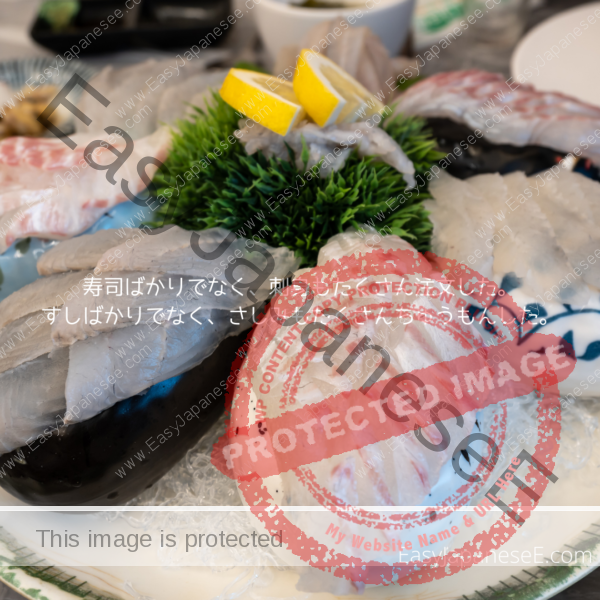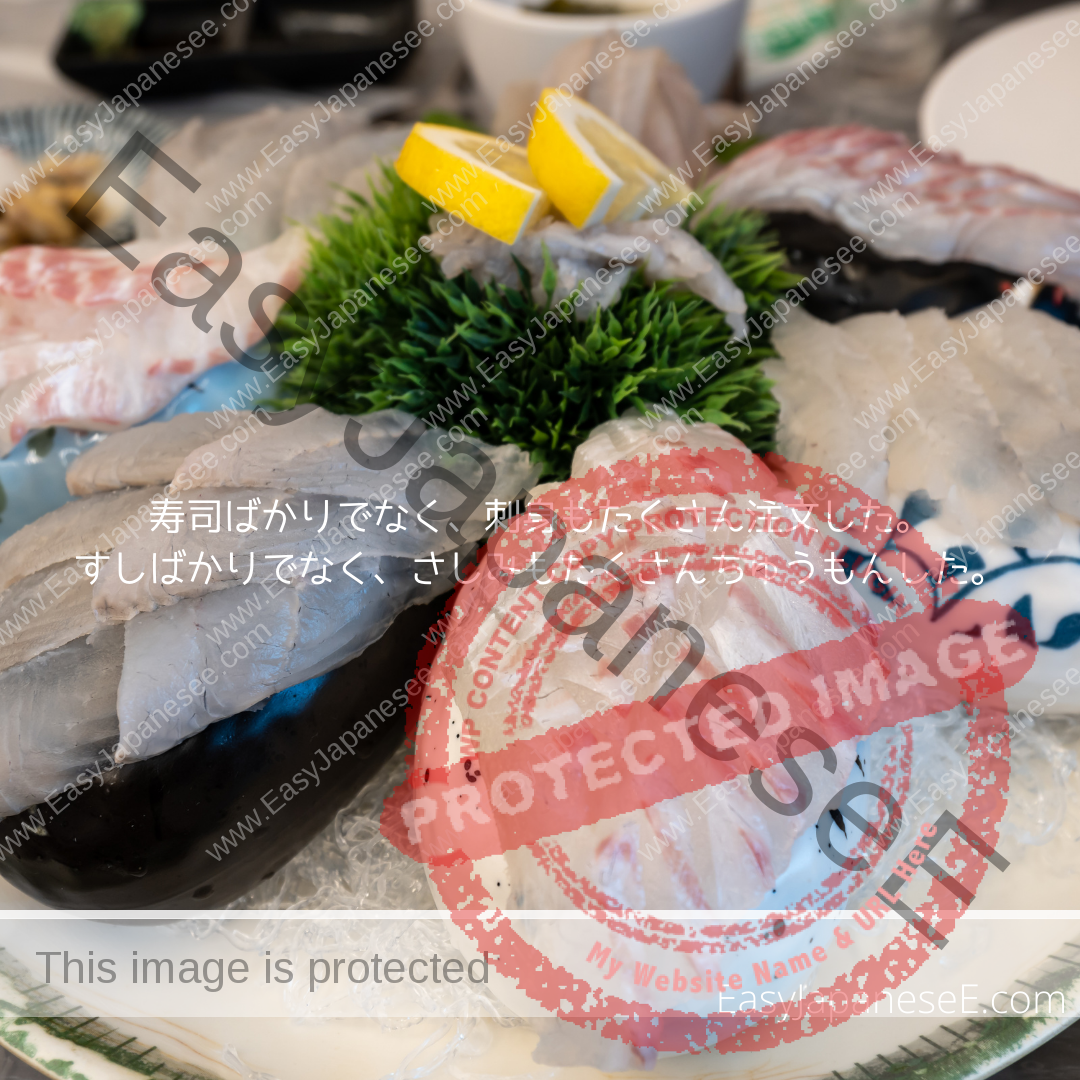
Today’s Grammar Point: ~ばかりでなく…も
Today’s grammar point is ~ばかりでなく…も, which means “not only ~ but also ….” It is basically the same as “~だけでなく…も” but ばかりでなく sounds more formal and is more often used in writing while だけでなく sounds a lot more casual and is more often used in conversations.
I think the most difficult part in using this pattern is to decide where to put the particle も in the second part of the sentence. See the examples below and examine why も is placed there.
Connection
- [noun] (+ である/だった) + ばかりでなく …も
- [plain form verb] + ばかりでなく …も
- [plain form いadjective stem] + い/かった + ばかりでなく …も
- [なadjective] な/だった + ばかりでなく …も
Examples
寿司ばかりでなく、刺身もたくさん注文した。
I ordered not only sushi but also a lot of sashimi.田中さんは英語ばかりでなく、中国語も上手です。
Mr. Tanaka is good at not only English but also Chinese.田中さんは英語を話すばかりでなく、 中国語も話します。
Mr. Tanaka not only speaks English, but also Chinese.田中さんは英語を理解するばかりでなく、スラスラ話すこともできます。
Mr. Tanaka can not only understand English but also speak fluently.田中さんは英語でスピーチをしたばかりなく、 中国語でも質疑応答していました。
Mr. Tanaka not only gave a speech in English, but also had a question and answer session in Chinese.あの寿司屋はおいしいばかりでなく、値段も手ごろだ。
Not only is that sushi restaurant delicious, it’s also reasonably priced.あのお寿司はおいしかったばかりでなく、見栄えも素晴らしかったです。
Not only was that sushi delicious, it also looked great.田中さんはスポーツが得意なばかりでなく、頭の回転も速いです。
Not only is Mr. Tanaka good at sports, he also has a quick mind.田中さんは英語教師ばかりでなく、通訳としても働いています。
Mr. Tanaka works not only as an English teacher but also as an interpreter.田中さんは英語教師だったばかりでなく、英語の通訳としても働きました。
Not only was Mr. Tanaka an English teacher, he also worked as an English interpreter.
Please visit my JLPT N3 Grammar page for more JLPT N3 grammar item.
If you liked this article, please share it with your friends using the social media buttons below. Also, your clicks on ads on this page help covering the cost of running this website. Your support will be much appreciated.

